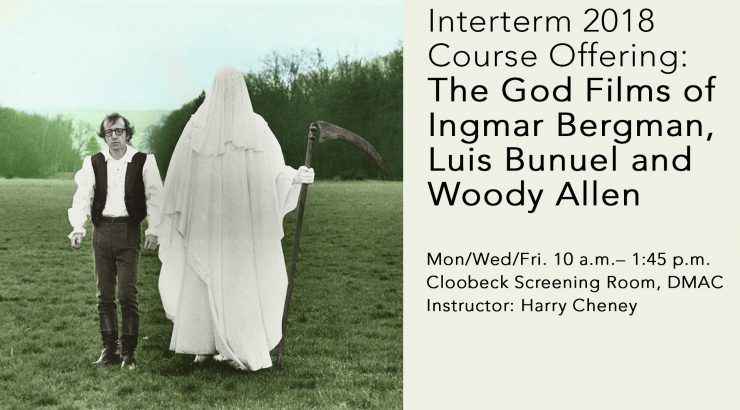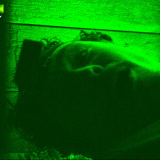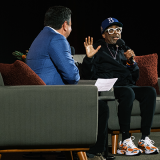
Interterm 2018 Offers a Robust Slate of Filmmaking, Film Study, and Film Writing
November 11, 2017
Staying in Orange over holiday break? Dodge College is offering a variety of courses this interterm, including:
TWP 374-01 / 574-01 Art and Business of Web Video
Instructor: Frank Chindamo
M/W/F 10 a.m. – 2:05 p.m. MKS 132
Prerequisites, DCFMA major, or minor. Some sections may be open to non-majors. Web video is exploding, and it’s the fastest, easiest way to break into the entertainment industry. This course introduces students to a new generation of filmmakers who are earning six and seven-figure incomes, studio deals, A-list Hollywood agents, book and record deals and more, because they have mastered the art and business of Web video. Learn what works for the Web: the genres, the monetization and the distribution models. Explore the secrets of YouTube’s top hit-makers. (Offered as needed.) 3 credits. Email chindamo@chapman.edu for more information.
FTV 329-13 / FTV 529-13: ScriptGym
Instructor: Robert Naturman
M/T/W/TH/F 9–11:30 a.m. DMAC Directing Stage, room 124
Get into the Best Shape You and Your Script Can Be. What if someone were to tell you that EXERCISE COULD MAKE YOU A BETTER WRITER? Using creative (and some physical) exercise, ScriptGym will develop and refine your writing skills better than ever before. And have a Script to show for it! Plus, you’ll never have so much fun writing. Email naturman@chapman.edu for more information.
FTV 329-11 / 529-11 Scripted TV From IP
Instructor Pat Quinn
M/W/F 12-3:50 p.m. DMAC Directing Stage, room 124
This course serves students who want to produce and develop small screen series based on literary properties or international formats. Students in this class will view the original material which inspired the show and compare it with the new show and discuss changes that were made to make it popular with a U.S. audience. Students will research movies, books, international TV shows and find ones that inspire them. Topics to be covered include: adaptation issues, cultural differences, copyright, option agreements, creative team building, production requirements, attaching A level talent, the sales process and sizzle reels. At the end of the class, students will have several projects to pitch to development executives. Email pquinn@chapman.edu for more information.
FTV 329-10 / 529-10: The God Films of Ingmar Bergman, Luis Bunuel and Woody Allen
Instructor: Harry Cheney
M/W/F 10 a.m.– 1:45 p.m. DMAC Cloobeck Screening Room
God is dead, the universe is empty and we’re screwed. Three great filmmakers examine the implications of life without meaning, purpose and cheese blintzes. Email hcheney@chapman.edu for more information.
FTV 329-02 / 529-02 Hollywood 1939: A Feast of Light & Shadow
Instructor: Emily Carman
T/Th 1-6:45 p.m. DMAC Cloobeck Screening Room
1939 was marked by a number of significant films, several of which we will be seeing in class (Mr. Smith Goes to Washington, Dark Victory, The Wizard of Oz, Gone With the Wind, and more). Each class will consist of a feature film screening followed by class discussion and lecture and incorporate primary source learning activities (analyzing censorship files, production materials, filmmaker interviews, fan magazines and film marketing campaigns, and modernist novels written about Hollywood and Southern CA). Email carman@chapman.edu for more information.
FTV 329-14 / 529-14 The First Ten Pages
Instructor: Adam Coplan
M/W/F 4-7:50 p.m. DMAC 124
Agents, Managers, Producers, Executives and their legions of gatekeepers all know within the first 10 pages whether a script is worth their time and an overwhelming number of screenwriters fail to recognize this and adapt accordingly. This is especially the case for less experienced screenwriters and those fresh out of academia. This class examines the first 10 pages of each student’s screenplay as a perfect introduction to their work for any industry professionals fortunate enough to read it, but more importantly, drive those readers to keep turning pages rather than moving on to the next in the pile. It will teach students the importance of immediately engaging their audience and how that is best accomplished, especially with professionals when more often than not, 10 pages (or less) is all you get. What is the right type of opening scene for each student’s specific work? How do they best feature the core expectations of the audience based on their chosen genres? What questions can be generated in the minds of any potential readers forcing them to not want, but need to continue reading in order to find satisfying answers? For more information, email filmdivision@chapman.edu

